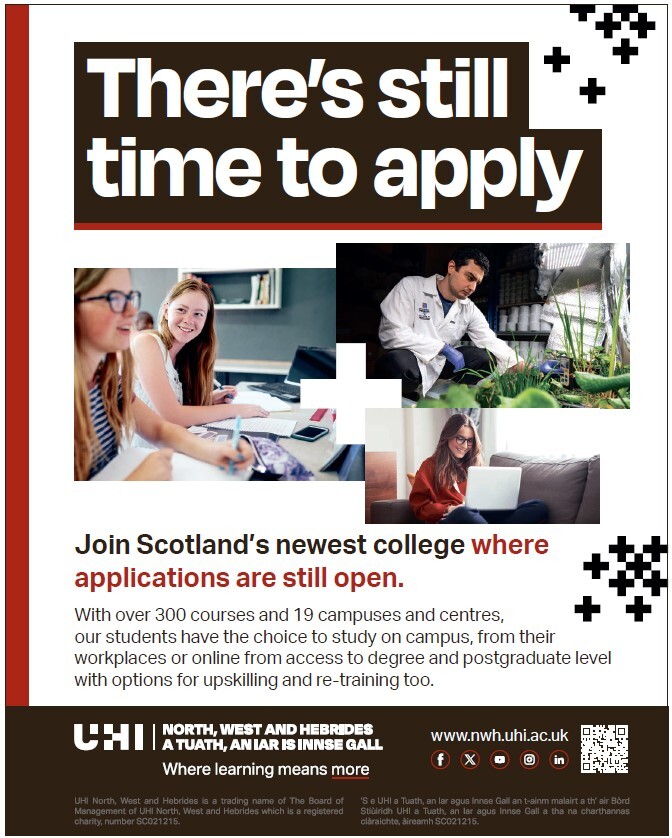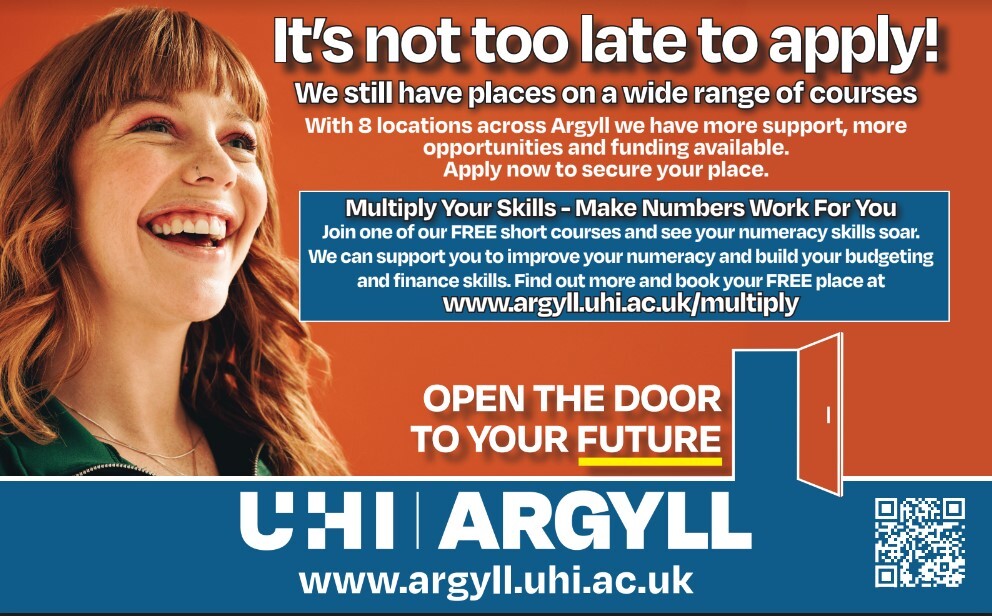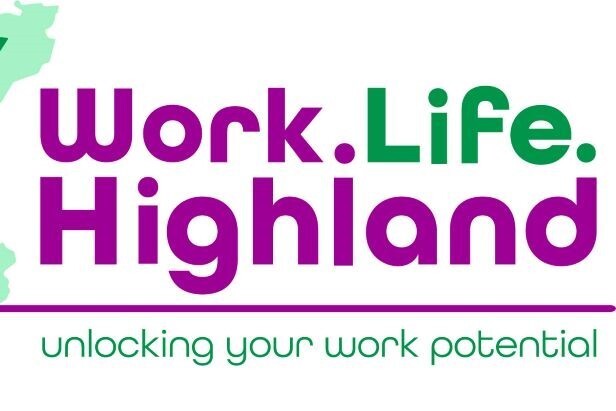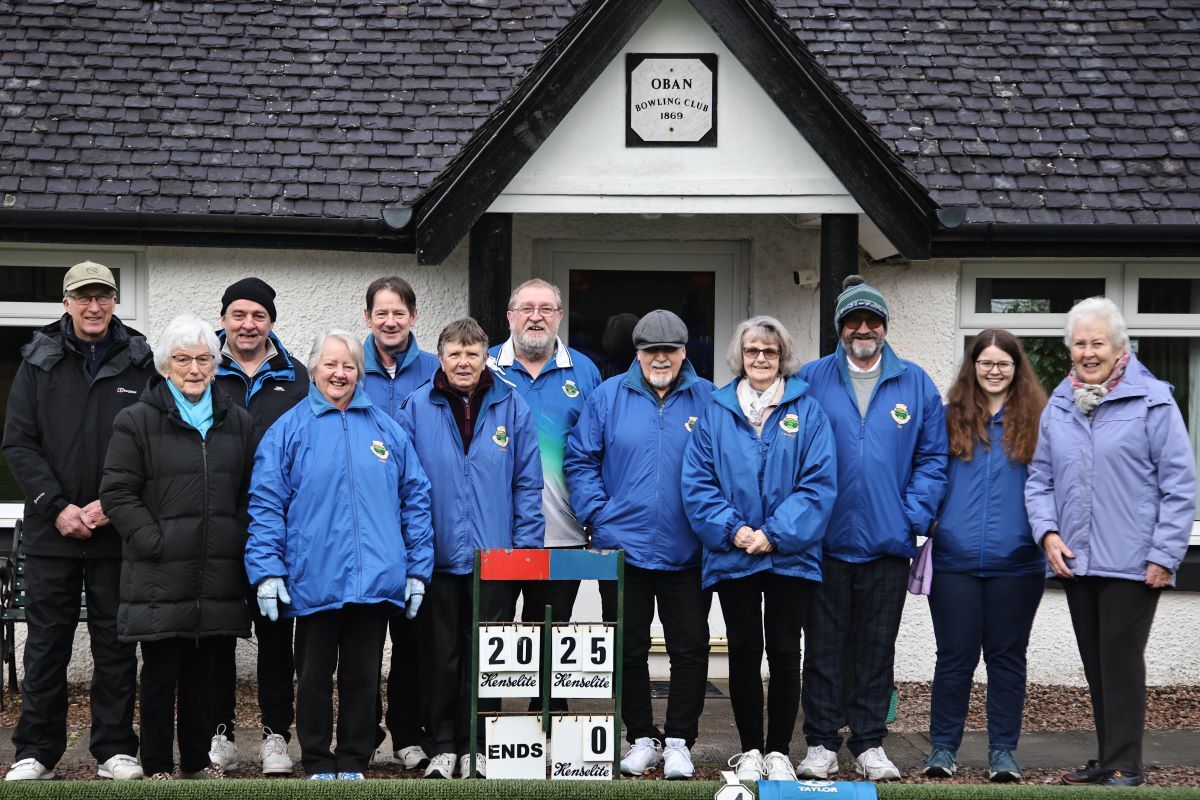'The Next Step' for young people thinking about their future options
The results are in, and many students will be wondering what comes next. Whether you are disappointed or delighted at your results, don’t panic, there are options.
And there is often more than one route into your chosen career. First, don’t compare yourself to your friends and classmates. Everyone has unique talents, so focus on your own situation, and your personal interests, strengths and goals. Everyone must take his or her own path.
Perhaps university isn’t for you, or isn’t right at this time. Or maybe you simply prefer to jump right into a work situation and start earning money now. You might want to think about gaining useful experience that employers or institutions might be looking for.
Research what experience and skills you need to achieve your goals. Many businesses offer school leaver schemes, or you may be able to start a graduate. And remember, your next step doesn’t have to be for life. Most career progressions are not a straight line, so keep an open mind, be prepared to work hard, and know that there may be an unexpected opportunity just waiting for you. My World of Work, brought to you by Skills Development Scotland is a great resource for exploring all options and offers sound advice, tips and tools to help you. Visit www.myworldofwork.co.uk
Whatever path you choose to take, this is an exciting time in your life, and with so many sources of support to help you on your way to your dream job, taking your next steps doesn’t have to be as daunting as you think. Your future awaits!
Here is some insight into the national bodies that are here to help you.
Scottish Qualifications Authority (SQA)
The Scottish Qualifications Authority (SQA) is the national body in Scotland responsible for developing, accrediting, assessing, and certifying qualifications. SQA’s role is crucial in ensuring that qualifications in Scotland are of a high standard and meet the needs of learners, employers, and the education sector.
Functions of SQA:
• Qualification Development:
SQA works with educators, employers, and industry experts to develop a wide range of qualifications, including National Qualifications, Higher National Certificates (HNCs), Higher National Diplomas (HNDs), and Scottish Vocational Qualifications (SVQs).
• Assessment and Certification:
SQA is responsible for the assessment of qualifications, including the administration of exams and the provision of certification to successful candidates. This ensures that learners’ achievements are recognised formally.
• Quality Assurance:
SQA ensures that the qualifications it offers are delivered consistently and to a high standard across various educational institutions.
• Accreditation:
SQA accredits qualifications developed by other organizations to ensure they meet national standards.
Contact Details:
Website: www.sqa.org.uk
Customer Contact Centre: 0345 279 1000
Email: customer@sqa.org.uk
UCAS (Universities and Colleges Admissions Service)
UCAS is the organisation responsible for managing applications to higher education courses in the United Kingdom. It acts as a centralised service that handles applications for undergraduate courses at universities and colleges across the UK, including Scotland.
Functions of UCAS:
• Application Processing:
UCAS processes applications for undergraduate courses, allowing students to apply to multiple institutions through a single system. This process simplifies the application procedure for both students and institutions. • Advisory Services: UCAS provides information and advice to students on a wide range of topics related to higher education, including course choices, entry requirements, and application deadlines.
It also offers guidance on how to write personal statements and prepare for interviews.
• Clearing and Adjustment:
UCAS operates the Clearing and Adjustment processes, which help students who have not met their conditional offers find alternative courses or secure a place at their preferred university if they exceed their offer conditions.
• UCAS Tariff:
UCAS manages the UCAS Tariff, a system used to allocate points to various qualifications, which universities and colleges use to make offers to applicants.
Contact Details:
Website: www.ucas.com
Customer Contact Centre: 0371 468 0468
Email: Use the online form on their website
Skills Development Scotland (SDS)
Skills Development Scotland (SDS) is Scotland’s national skills agency, dedicated to supporting individuals and businesses in developing the skills they need for success in a rapidly changing economy. SDS plays a key role in the development of Scotland’s workforce and the delivery of career services.
Functions of SDS:
• Career Guidance: SDS provides career advice and guidance to people of all ages, helping them make informed decisions about their education, training, and employment opportunities. This includes access to Career Coaches, online resources, and local career centres.
• Skills Development:
SDS works with businesses, schools, and colleges to promote skills development through apprenticeships, training programs, and other initiatives aimed at enhancing employability.
• Apprenticeships:
SDS is responsible for the delivery and promotion of apprenticeship programs in Scotland, including Modern Apprenticeships, Foundation Apprenticeships, and Graduate Apprenticeships. These programs provide individuals with the opportunity to earn while they learn and gain valuable work experience.
• My World of Work:
SDS runs the My World of Work website, a comprehensive resource offering career advice, information on job opportunities, and tools to help people plan their careers.
Contact Details:
Website: www. skillsdevelopmentscotland.co.uk
Customer Contact Centre: 0800 917 8000
Email: info@ skillsdevelopmentscotland.co.uk
These organisations play crucial roles in the education and skills landscape in Scotland and the wider UK, ensuring that students and professionals alike can access the qualifications, guidance, and support they need to succeed. Whether you’re navigating school qualifications, applying to university, or seeking career advice and training, SQA, UCAS, and SDS are central to these processes.
Do you know someone who has just left school and is thinking about their next steps, or perhaps someone considering a career change?
We have a range of courses starting this August, and it’s not too late to apply! Whether you’re looking to upskill, retrain, or simply want to try something new, you’ll be able to get recognised qualifications with UHI Argyll, without having to travel too far from home.
As a partner of the University of the Highlands and Islands, we provide full time and part time courses at Further Education, Higher Education, Degree and post graduate level. Our subjects range from Business to Computing, Beauty, Childcare, Horticulture, Healthcare and more, so there really is something for everyone!
We also work closely with local employers across Argyll to provide a range of Modern Apprenticeships, giving you the chance to ‘learn while you earn’.
Improve your Numeracy Skills:
UHI Argyll has also joined forces with Argyll and Bute Council to give adults the chance to learn new skills with numbers that will benefit everyday life, like helping children with homework or budgeting money. The courses are fully funded through Multiply, a new UK Government programme to help adults improve their numeracy skills, and are aimed at people with no or low-level maths skills.
The four programmes, which will start this August, are now open for applications.
Elaine Munro, Principal of UHI Argyll, says:
“Employers tell us just how important core skills, such as numeracy, are in the workplace, so we’re delighted to be working with Argyll and Bute Council to deliver courses that provide practical help for people in their day to day lives, offering a stepping stone to further qualifications and better employment prospects.”
If you’d like to speak to someone about your options visit your local centre and speak to our friendly staff. You can find out about our courses, what it’s like to study with us, and the types of funding and learning support available. When you’re ready to apply we can even help you with your application.
Visit: www.argyll.uhi.ac.uk
A career in hospitality…
Working in Scotland’s hospitality industry is dynamic and rewarding, with numerous opportunities for personal and professional growth. The industry is diverse, covering roles from hotel management to catering, event planning and customer service.
One of the key benefits is the development of highly transferable skills, such as communication, marketing and problem-solving, which are valuable across various sectors. The industry is known for its flexibility, offering varied working hours suitable for different lifestyles, from part-time work to full-time careers.
Additionally, the global nature of hospitality opens up international career opportunities, allowing for travel and cultural exchange. While the work can be demanding, particularly during peak seasons, it is equally rewarding.
The chance to meet new people, create memorable experiences, and work in a vibrant environment makes hospitality a fulfilling career choice. For those passionate about the industry, there are clear pathways for advancement, from entry level roles to managerial positions, ensuring long-term career potential.
These qualifications and experiences provide a structured pathway for individuals looking to enter or advance within the hospitality industry in Scotland, offering both practical skills and theoretical knowledge to succeed in a wide range of roles.
Scottish Vocational Qualifications (SVQs)
SVQs provide a structured pathway for career development in the hospitality industry.
• SVQ Level 1 in Hospitality is an introductory qualification that covers basic skills in areas like food preparation, customer service, and housekeeping, making it ideal for newcomers.
• SVQ Level 2 in Hospitality Services builds on these basics, focusing on practical skills for roles such as food and beverage service, housekeeping, or front office operations.
• SVQ Level 3 in Hospitality Supervision and Leadership is tailored for those in or aspiring to supervisory roles, emphasising leadership, team management, and operational skills.
• SVQ Level 4 in Hospitality Management Skills is designed for individuals moving into management, covering advanced topics like strategic management, resource management, and customer service at a higher level.
Higher National Certificates (HNC) and Higher National Diplomas (HND)
HNCs and HNDs provide comprehensive education in hospitality management.
• HNC in Hospitality Operations offers a solid foundation, covering essential aspects such as finance, human resources, and marketing, alongside practical hospitality skills.
• HND in Hospitality Management builds on the HNC, offering a more in-depth study to prepare individuals for managerial roles in hotels, restaurants, and other hospitality businesses.
Modern Apprenticeships
The Modern Apprenticeship in Hospitality combines on-the-job training with academic study, leading to SVQs at various levels. This approach is ideal for those who prefer to gain practical experience while continuing their education.
Foundation Apprenticeships
The Foundation Apprenticeship in Hospitality is designed for school students, providing an introduction to the hospitality industry with hands-on experience, which can lead to further education or direct employment in the sector.
There are many other certificates, diplomas and degree courses available
visit www.uhi.ac.uk to find out more about hospitality courses in your local area.
Argyll and the Isles needs more people like you to make their mark of excellence in the region’s hospitality sector!
Welcome to the start of your Sonas Career! Join the Knipoch Hotel Team!
The Sonas Hotel Collection is a hospitality group based in the highlands of Scotland. We currently have four boutique hotels and a central support office within the portfolio.
As the largest hospitality employer on the Isle of Skye, for over 20 years we have committed to delivering great highland hospitality whilst championing hospitality as a career choice. As a family run business, we are passionate about building a lasting connection with others, be they guests or colleagues, and for our colleagues we want to support their personal and professional development, aiming to internally promote to our management teams wherever possible.
Our latest venture is the breathtaking Knipoch House Hotel just a short hop from Oban. The 26-room hotel is the largest in our collection and began its Sonas journey in 2024. Knipoch House Hotel boasts both an A La Carte restaurant, and our fine dining restaurant, 1635 (opening in autumn 2024). A hotel for true hospitality superstars, we are looking to grow our year-round team.
We offer job opportunities in hotel operations, covering housekeeping, food and beverage, reception, kitchen and management, and central support functions including human resources, finance, sales and marketing and central reservations.
There is something for everyone, and we love working with people to realise where their passion lies within hospitality.
We offer full time, part time or casual hour contracts, on a permanent or temporary basis dependent on your needs. This makes a career within The Sonas Hotel Collection ideal for those who have commitments outside of work (such as caring or studying), because our flexible rotas can work around their lives.
To find out what our current job vacancies are, check out our careers page at www.sonascareer.com/
A career in care…
Being a carer in Scotland involves taking on the responsibility of supporting individuals who need help with daily living activities due to age, illness, disability, or other factors. T
his role is multifaceted and deeply impactful, benefiting both the individuals receiving care and society as a whole.
Roles and Responsibilities Carers undertake various essential tasks, ranging from personal care, such as helping with bathing, dressing, grooming, and toileting, to more complex healthcare support.
They may assist with medication administration, attend medical appointments, monitor health conditions, and liaise with healthcare professionals. In addition to physical care, providing emotional support is a significant aspect of the role.
Carers offer companionship, reassurance, and help individuals maintain social connections, which are crucial for mental well-being. Household management is another critical duty, where carers assist with tasks like cooking, cleaning, shopping, and managing finances, ensuring that the person’s living environment is safe and comfortable.
Often, carers also act as advocates, ensuring the rights and preferences of the individuals they care for are respected, especially in interactions with health and social care services.
Types of Carers
Carers in Scotland can be broadly categorised into paid and unpaid carers.
Paid carers are professionals employed by care agencies, residential care homes, or directly by individuals and families. They may work in various settings, including private homes, care facilities, and hospitals.
Unpaid carers, often family members or friends, provide care without financial compensation, balancing these responsibilities with other roles such as employment or education.
Young carers, who are children or young people under 18, take on significant caring responsibilities, often for a parent or sibling, managing both their caregiving duties and their own developmental needs.
Legal and Ethical Considerations
Professional carers in Scotland must register with the Scottish Social Services Council (SSSC), which sets standards for conduct and practice. This registration ensures that carers meet necessary qualifications and adhere to ethical guidelines, including respecting the dignity, privacy, and human rights of those they care for.
Carers are expected to support individuals in making their own decisions and living as independently as possible.
Challenges and Rewards
Caring can be physically and emotionally demanding, with carers often facing challenging situations, such as managing complex health needs or dealing with the emotional strain of supporting someone with a serious illness or disability.
Despite these challenges, many carers find the role deeply rewarding. The opportunity to make a positive difference in someone’s life, build strong relationships, and contribute to the well-being of others provides a profound sense of fulfillment.
Support and Resources
Scotland offers various support mechanisms for carers, including financial support through Carer’s Allowance, access to respite care, and services provided by local councils and voluntary organisations.
Both paid and unpaid carers have access to training and development opportunities to enhance their skills and knowledge. This includes courses on specific care techniques, stress management, and understanding medical conditions. The Carers (Scotland) Act 2016 further supports carers by providing rights to a carer’s assessment, access to support services, and recognition of their role in care planning and decision-making.
Community and Recognition
Carers in Scotland are part of a broader community of care professionals, volunteers, and organisations dedicated to supporting vulnerable individuals. This community plays a vital role in the health and social care system, providing a network of support and shared experiences. The role of carers has gained increased recognition, particularly following the COVID-19 pandemic, which highlighted the critical work done by carers in ensuring the well-being of vulnerable people.
Personal Growth and Development
Being a carer helps develop a wide range of skills, including empathy, communication, problem-solving, and resilience. These skills are valuable not only in caregiving but in many aspects of life. For paid carers, there are opportunities for career advancement within the care sector, including moving into specialized roles, supervisory positions, or even management.
In summary, being a carer in Scotland means being dedicated to improving the lives of vulnerable individuals while working within a framework of respect, dignity, and support. It is a role that requires compassion, commitment, and resilience, offering the opportunity to make a meaningful impact on individuals and society.
Developing The Young Workforce
You may have spotted some of the 1000s of #NoWrongPath posts on social media in August…but what is ‘No Wrong Path’?
It’s a campaign led by Developing the Young Workforce, to provide inspiration and reassurance to young people when they are receiving their SQA results.
Through lived experience posts on social media that week, DYW aimed to highlight the different career pathways that are available to young people. To illustrate that exam results are not necessarily the key to unlocking future career success. That there are many people in interesting job roles across Scotland may not have taken
a direct, obvious or traditional path to get there. That there is #NoWrongPath…
Every pathway can lead to success
In today’s rapidly evolving world, the traditional paths to career success are being redefined.
The #NoWrongPath campaign, championed by Developing the Young Workforce, is a testament to this shift,
emphasising that there is no single correct route to achieving one’s professional goals. This campaign is designed to inspire young people by showcasing the diverse and often unexpected journeys taken
by individuals in various fields.
The Role of DYW
Developing the Young Workforce plays a pivotal role in this campaign by connecting education with employers to create meaningful opportunities for young people.
DYW aims to reduce youth unemployment by encouraging and supporting youth employment and education initiatives that align with the needs of local businesses. The #NoWrongPath campaign fits seamlessly into this mission, providing a platform for young individuals to see the wide range of opportunities available to them.
Leaving school?
Finding permanent work? There’s lots of support out there, here’s a website with a handy toolkit from SDS:
www.myworldofwork.co.uk This website also offers lots of great advice, from what different career paths involve and how best to get started, to college applications, CVs and advice for parents and carers.
Looking for an opportunity?
Discover what you could be doing next using our national Opportunities Finder, visit:
www.youngpersonsguarantee.scot
If you still can’t find what you’re looking for, get in touch with your local DYW team:
Argyll & Bute
www.dyw.scot/dywargyllandbute
West Highland
www.dywwesthighland.org
Latest News
JOBS
Childcare and Education Worker - ARB15470 - Argyll and Bute Council
Sign up to our daily Newsletter
Permission Statement
Yes! I would like to be sent emails from West Coast Today
I understand that my personal information will not be shared with any third parties, and will only be used to provide me with useful targeted articles as indicated.
I'm also aware that I can un-subscribe at any point either from each email notification or on My Account screen.
You may also like
UHI Argyll Big College Open Week
Latest News
JOBS
Childcare and Education Worker - ARB15470 - Argyll and Bute Council



















